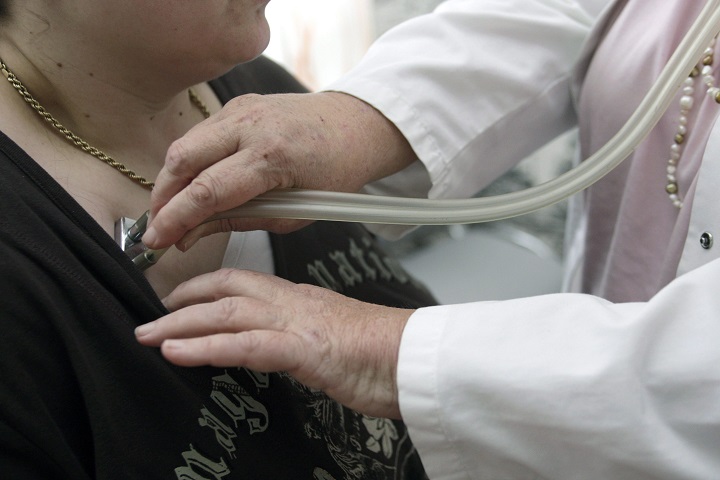TORONTO – A group of doctors pushing for tighter gun laws says one of its leaders has been targeted in an “organized campaign of mass harassment” fuelled by gun rights activists.

Canadian Doctors for Protection from Guns says dozens of complaints filed with Ontario’s medical regulator are about Dr. Najma Ahmed, a Toronto trauma surgeon who treated victims of a fatal mass shooting in the city’s Danforth neighbourhood last summer.
Dr. Philip Berger, one of the group’s co-founders, said Friday the complaints against Ahmed amount to a “personal attack” for speaking on the issue.
He said the argument made by detractors that doctors should not wade into such debates ignores that advocacy is considered a core competency for physicians.
“There is a public duty and responsibility of doctors to speak out, and speak out loudly, when they have identified external conditions, circumstances and policies that are making their patients sick or impeding their recovery from illness,” he said.
“By the same argument I suppose doctors shouldn’t talk about cigarette smoking or drunk driving or any condition which affects people’s health and lives.”
The Canadian Coalition for Firearm Rights, an advocacy group representing legal gun owners, has urged its supporters to file complaints about Ahmed with the college, arguing physicians should not take political positions.

Get breaking National news
In a tweet last month, one of the coalition’s staff members said she was submitting a complaint because it is “immoral” for a doctor to use her influence for political purposes.
The group’s executive director, Rod Giltaca, said firearm ownership, unlike seatbelt laws and other similar issues that doctors have weighed in on, is “incredibly complex.”
“They formed a group and the credibility they’re bringing to that group is that they’re medical doctors – medical doctors are not firearms experts by any means,” he said.
“Right now what they’re doing is they’re thrashing around, advocating for policies that they truly do not understand the ramifications (of).”
A video posted on the group’s website shows Giltaca suggesting that banning private ownership of handguns could lead police to raid homes and accidentally shoot children.
In an interview Friday, Giltaca – who has experience in firearms training – said the video was a “desperate” effort to highlight how little others understand the effects of gun policies.
“What that is, is my attempt to get people to listen to avoid those things from happening,” he said, noting his group has offered to help inform the doctors’ group.
WATCH: St. Michael’s Hospital trauma team conducts simulation of gunshot wound victim assessment, treatment

The College of Physicians and Surgeons of Ontario, meanwhile, said it cannot confirm the content of the nearly 70 complaints it has received in the last month related to doctors advocating gun control, nor which physicians are named.
The college said a committee is reviewing the complaints and will determine whether to investigate further or designate them as “frivolous and vexatious.”
“The CPSO’s legislated complaints process is generally intended to focus on clinical care or professional behaviour,” the college’s registrar, Nancy Whitmore, said in a statement.
“The CPSO’s role is not to resolve political disagreements when clinical care/outcomes or professional conduct is not in question. We recognize that physicians can play an important role by advocating for system-level change in a socially accountable manner.”
Whitmore also expressed concerns that complaints about political issues could divert resources from examining complaints related to clinical care.



Comments